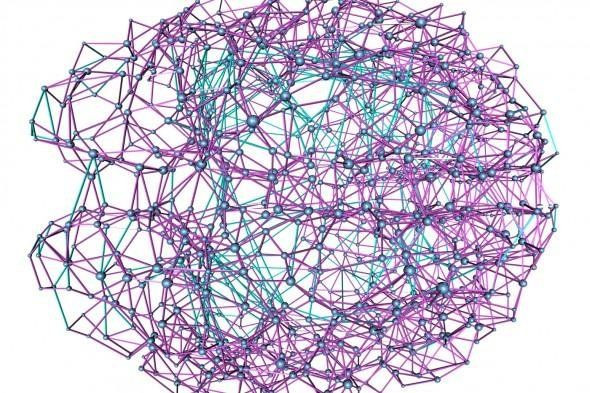Human Brain's Network Structure Is Almost Ideal: Study

The network structure of the human brain is almost perfectly organized for transmitting and processing information, scientists have found.
A team of researchers led by Northeastern University physicist Dmitri Krioukov found that the network structure of the human brain is almost perfectly designed. The finding has implications for evolutionary theory and could help identify and cure neurological diseases. Their findings were published in the July 3 issue of the journal Nature Communications.
"An optimal network in the brain would have the smallest number of connections possible, to minimize cost, and at the same time it would have maximum navigability--that is, the most direct pathways for routing signals from any possible source to any possible destination," Krioukov said, in a press release on Tuesday.
Using statistical methods that used game theory techniques designed by Nobel laureate John Nash, the team created a model of what a perfectly optimal brain would look like -- one with no wasteful connections. They then compared the ideal brain to an actual one and found an 89 percent similarity between the two.
"That means the brain was evolutionarily designed to be very, very close to what our algorithm shows," Krioukov said.
The method used by the scientists to first create the idealized brain breaks with scientific tradition, which would normally call for studying a real brain first and only then considering function, Krioukov said.
This method of evolutionary modeling has uses in several other fields. A previous study by the same team mapped six separate navigable networks using very different mediums, including the Internet, U.S. airports, Hungary's road network and the universe itself. They found that the same fundamental laws govern the growth of all these systems.
"By no means do we claim that the Universe is a global brain or a computer," Krioukov said, in 2012. "But the discovered equivalence between the growth of the Universe and complex networks strongly suggests that unexpectedly similar laws govern the dynamics of these very different complex systems."
More immediately, Krioukov said that his research can help identify where the brain is deviating from its idealized form, which could be useful in identifying and treating brain diseases.
"At the end of the day, what we are trying to do is to fix the diseased network so that it can resume its normal function," Krioukov said.
© Copyright IBTimes 2025. All rights reserved.





















